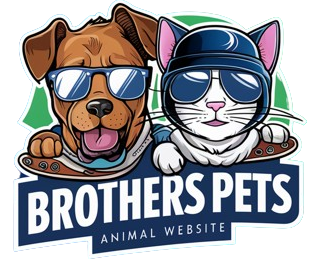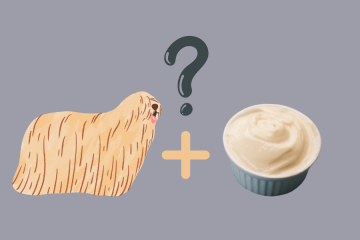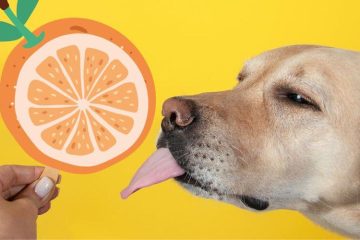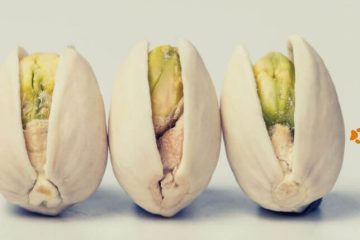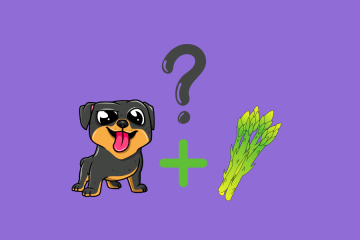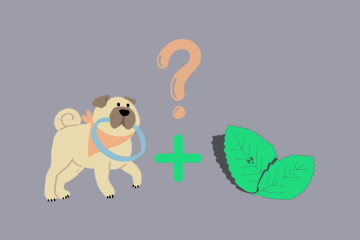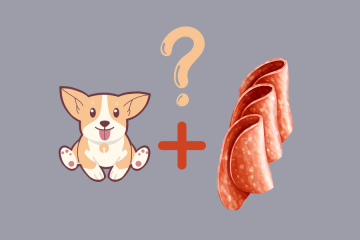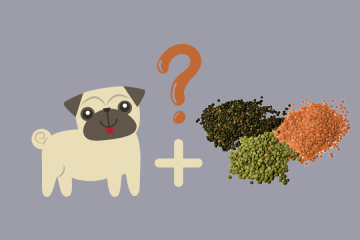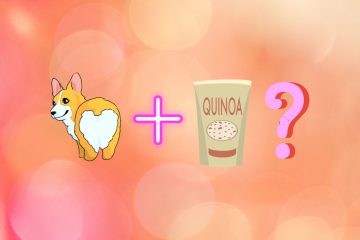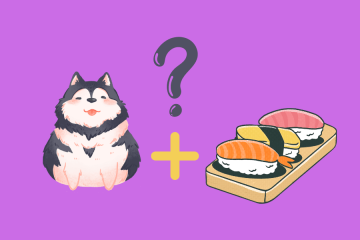KEY TAKEAWAYS
- Peanuts are safe for dogs to eat in moderation, but they can be harmful if eaten in large quantities.
- Peanuts can contain aflatoxin, which can trigger a condition called aflatoxicosis in dogs.
- Peanuts can also contain xylitol, which is highly toxic to dogs and can lead to life-threatening decreases in blood sugar and liver failure.
- The amount of peanuts that can safely be fed to your dog varies depending on their size, weight, and diet.
- Peanut shells are more dangerous than peanuts themselves because they often contain bacteria like Salmonella and E.coli.
When Is Eating Peanuts Bad for Dogs?
Are there any disadvantages of peanuts in dogs? Can dogs eat peanuts at all times? No! While a tasty snack for humans, peanuts can be highly dangerous to dogs if consumed in large amounts. These treats contain mold known as aflatoxin that causes aflatoxicosis and the sugar substitute xylitol, both of which could lead to life-threatening conditions such as decreased blood sugar levels and liver failure. Pet owners should exercise caution when offering their furry friends “people food”.
How Many Peanuts Can My Dog Have?
Choosing the right amount of peanuts to feed your pup can seem tricky. However, with a little help from their vet, you’ll be able to give them just enough for wholesome treats and snacks without any worries. A general rule says that a dog should not consume more than three or four peanuts a day, but we actually recommend to stick to the dosage of a few peanuts per week!

Xylitol and Peanuts
As mentioned above, xylitol is another harmful ingredient found in peanuts. Xylitol can cause hypoglycemia in canines, because its pancreas takes it as sugar and eventually lets out insulin to safely store it. In effect, a pup’s sugar levels will drop, and he might get weak as ever. So can dogs eat peanuts whenever they want to? Not when they contain these dangerous substances!
Are Peanut Shells Good for Dogs?
Some dog owners are not aware that peanut shells can be harmful to dogs. In fact, they’re more dangerous than peanuts themselves, because dogs tend to swallow the whole thing instead of spitting out the bad parts. Better not give Rocky the shells, as the choking hazard is too great of a risk.
Dogs can’t digest the shells completely, and they can cause intestinal obstructions, which can lead to death if not treated immediately by a veterinary surgeon. But that’s not all. Peanut shells can also be contaminated with bacteria, like Salmonella and E.coli, so it is important to clean them up well before your dog has enjoyed them.
Can Dogs Eat Honey Roasted Peanuts?
Healthy for humans, but deadly to dogs! Honey-roasted peanuts and other peanut treats may seem tempting to pups, but the addition of preservatives, seasonings and garnishes can be extremely risky. So next time your pup looks longingly at those groundnuts – keep them safe by saying no!
Too much sodium can cause serious heart diseases in dogs. More to that, the outer part of salted peanuts have been known to be poisonous to dogs. They may actually be contaminated with Aspergillus flavus, a type of fungus which causes a disease in dogs called pulmonary aspergillosis. So, can dogs eat peanuts that were roasted? You should know the answer by now!
Can Dogs Have Peanut Allergies?
When a dog has peanut allergies, he can experience anything from red skin with painful sores to compulsive licking and bald patches. This all might leads up to anaphylactic shock, which is deadly if not treated by a vet quickly enough! If you suspect your pup might be allergic to nuts, talk to a doggie doctor now, or you risk losing him. Such symptoms as edema (swelling), difficulty breathing, hives etc., mean you need to contact your veterinarian!
Some breeds are more likely than others to develop this condition. Breeds that are at higher risk include Terriers (such as Scottish and White Terriers), miniature Schnauzers, Spaniels (including Cocker Spaniels), West Golden Retrievers and Poodles.
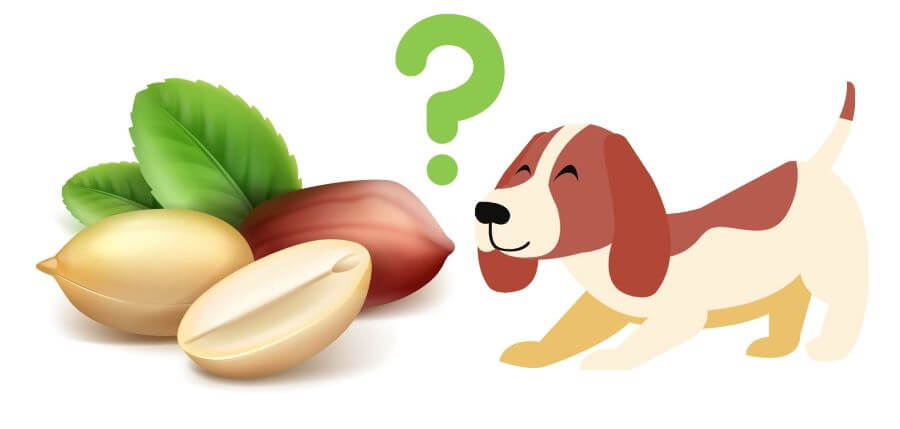
Best Peanut Treats for Dogs. Ways to Serve
Are you done with dog treats that have sweeteners? Are you really scared of pancreatitis in dogs, and you want to turn to some healthy fats? Well, here are some ideas on how to offer your pooch a healthy peanut snack:
- plain, unsalted peanuts;
- peanut butter (make sure it doesn’t contain any extra ingredients that your dog is allergic to);
- homemade peanut butter cookies with no sugar;
- trail mix with peanuts and other healthy ingredients;
- a few ground raw peanuts mixed with your pet’s favorite dog food.
Can Dogs Eat Peanuts? Conclusion
So, the answer to the question, “Can dogs eat peanuts?” is a fair yes! Peanuts are safe for dogs and make a great snack or training treat. Just be sure to feed your pup peanuts without the shells and in moderation so as not to cause weight gain. And if you’re ever unsure about whether a particular food is safe for your dog, always consult with your veterinarian. Now that we’ve answered whether dogs can eat peanuts, tell us what kind of delicious peanut recipes you recommend for pooches!
Frequently Asked Questions
What Happens if a Dog Eats Peanuts?
Peanuts are a snack treat for pups – but proceed with caution! While moderate amounts of unsalted, unroasted peanuts can be part of your pup’s diet, too many may contribute to weight gain or pancreatitis. And if your pooch is sensitive, they could experience an allergic reaction. As always when feeding treats: keep it in moderation and stay vigilant about the reactions from Fido!
How Many Peanuts Can a Dog Eat per Day?
It really depends on the size of the dog, but as a general rule, 3-4 peanuts is a safe maximum dose.
Why Can’t Dogs Eat Peanuts?
Actually they can! Peanuts can be a great source of protein for dogs, so long as you stick to unsalted and roasted varieties. The problem occurs when peanuts contain other ingredients, such as certain oils or sugar. These can be harmful to your pet’s health in the long run.
Why Can Dogs Have Peanut Butter But Not Peanuts?
Dogs can have both peanuts and peanut butter, but moderation is key. Peanuts contain high levels of fat, which can cause pancreatitis in some dogs if they eat too much. Peanut butter, on the other hand, is usually low-fat and processed to remove any choking hazards. Additionally, when choosing peanut butter for your pup make sure it doesn’t contain xylitol, a sweetener that is toxic to dogs.
Lucas Taylor is a veterinary assistant, freelance journalist and single dad who lives in the suburbs with his three pups: Ruby, Nala, and Woody. He has one cat named Pepper. When he’s not writing articles or working at the vet clinic, Lucas loves cooking French cuisine for himself and friends at home. One of Lucas’ favorite things to do is paddleboard with his son Noah and their canine companions. Pepper is the homebody of the bunch – she loves chilling on the couch.
